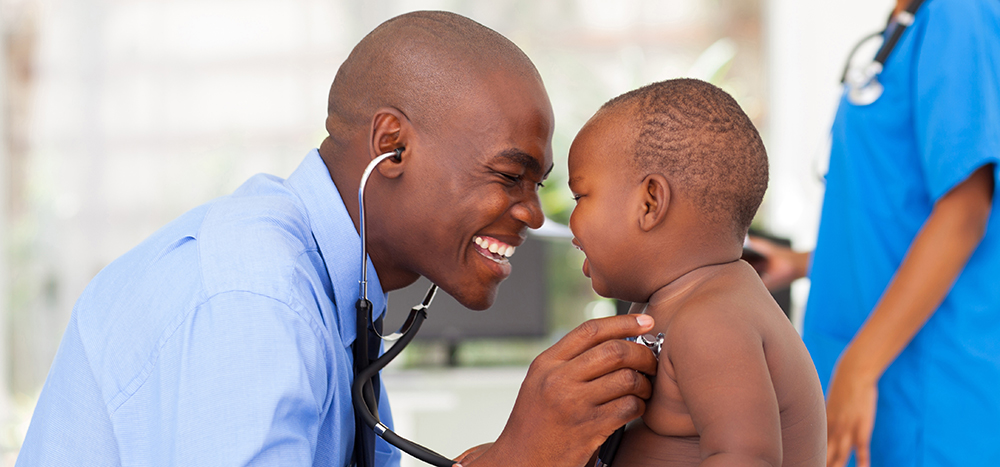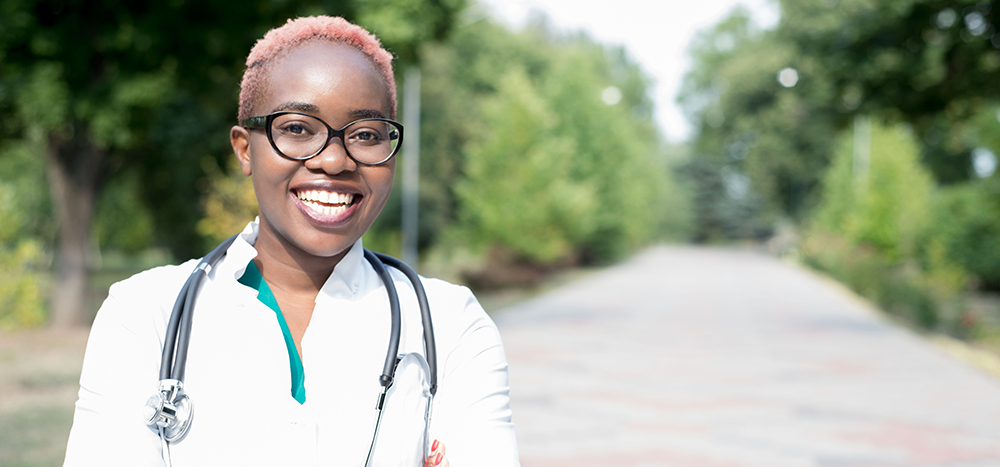
Leveraging the multidisciplinary UAB global health network to operationalize an innovative, centralized, transdisciplinary, tailored, cost-efficient global health fellowship program.
Curriculum
This unique program allows for each fellow’s curriculum to be tailored to the individual’s specific educational needs and desires. Below are possible examples of two possible curriculum tracks, one or two years. This fellowship offers a unique opportunity to gain experience in the fields of psychiatry and pediatrics through collaboration with the UAB Department of Psychiatry and Neurobiology and the UAB Department of Pediatrics.
The differences between examples are noted below as (*1 year*) (**2 year**). If items do not have an indicator, they are suggested for both tracks.
Note: Opportunities for support from ongoing research projects (i.e., D43, T32, etc.) are available.
Field Work
-
3-5 month clinical assignment practicing specialty-specific medicine in LMIC (*1 year*)
-
Embedded 6-9 month field research in LMIC (**2 year**)
Education
-
Master of Science in Global Health (UAB Heersink School of Medicine/School of Public Health) (**2 year**)
This program connects students with cutting-edge global health research and practice through collaborations amongst the Sparkman Center for Global Health, the Mary Heersink Institute for Global Health, the Global Health Consortium, and international partners. -
Graduate Certificate in Global Health (15 graduate credit hours in UAB School of Public Health) (*1 year*)
-
Guided specialty-specific global health literature review (*1 year*)
-
Humanitarian Response Intensive Course (Harvard Course or equivalent)
-
Optional:
-
Point-of-care ultrasound training
-
Wound care course
-

Professional Development
-
Attending a national global health conference (CUGH or equivalent)
-
Heersink School of Medicine engagement
-
Mentored research project
-
Formal UAB bootcamp research training course
-
-
Direct mentorship, cross-discipline mentorship
-
National leadership opportunities
-
Regional/national speaking opportunities
-
Hospital committee engagement (SIDT, employee health, etc.)
-
Adjunct course instructor (medical student global health course, etc.)
-
Present or publish scholarly work to UAB and global health community
Employment
-
Appointment as Clinical Instructor / Fellow in specialty-specific academic department
-
Fellowship appointment to the Mary Heersink Institute of Global Health
-
Access to programmatic/administrative staff, collaborating faculty, bidirectional partnerships, research network, and alumni
-
Bedside supervision/teaching of medical students/residents / APPs

Application
To apply for this fellowship please submit the following via email to both the Program Manager & Director:
-
Curriculum Vitae (CV)
-
Letter of interest/personal statement
-
Two letters of recommendation
Deadline
For the 2024-2025 year, the fellowship runs on a rolling deadline with a start date of July 1, 2024.
Contact
For questions or additional information please contact abrilbagnew@uabmc.edu.
Matthew Heimann, M.D.
Program Director
mheimann@uabmc.edu
![]() Abril Agnew
Abril Agnew
Program Manager II
abrilbagnew@uabmc.edu
About UAB
UAB, the heartbeat of Birmingham, is a leading force in medical education, research, and health care delivery. With a commitment to training future physicians, conducting impactful scientific research, and offering high-quality health care, UAB serves as a key medical leader in the Southeast. Its influence extends through regional campuses, reaching underserved areas of Alabama. UAB boasts a diverse community of over 800 students, 1,100 residents and fellows, and 1,700 full-time faculty across 28 departments. Notable facilities include the Kirklin Clinic, University Hospital, and faculty serving Children's of Alabama hospital. Learn more about UAB and the Heersink School of Medicine.
About Birmingham
Birmingham, often hailed as the "Magic City," stands as a vibrant hub of medical innovation and academic excellence. The medical landscape here is marked by groundbreaking research, cutting-edge technologies, and a commitment to advancing medical knowledge. Birmingham's rich cultural tapestry, shaped by its historical significance in the civil rights movement, adds depth to the city's character. Beyond its medical prowess, Birmingham boasts a diverse community, a thriving arts scene, and a strong sense of Southern hospitality. Learn more about the Magic City.